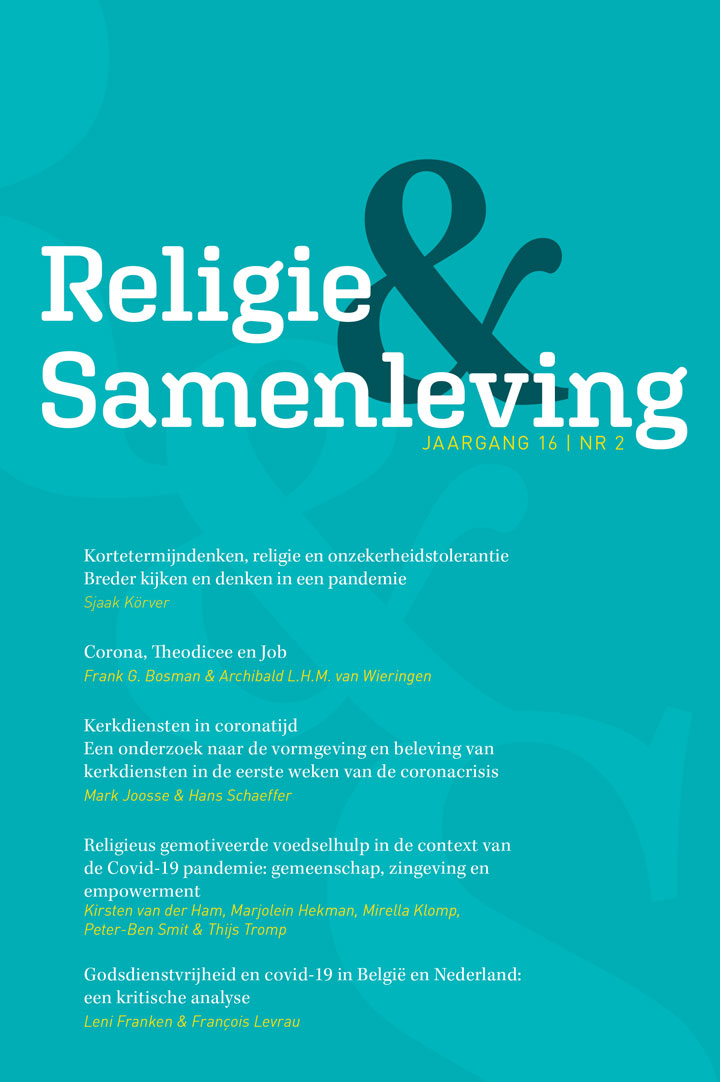Godsdienstvrijheid en covid-19 in Belgie en Nederland
Een kritische analyse
DOI:
https://doi.org/10.54195/RS.11469Samenvatting
Face masks, curfew, quarantine, tele-working and social contact restrictions, these are just a few of the many measures that have been taken by the Belgian and Dutch Governments in order to avoid a further spread of the covid-19 pandemic. One of the most contested measures in both countries was the (absence of a) legal restriction of religious practices: while religious groups in the Netherlands were, in the name of religious freedom, not obliged to follow the restrictions that were imposed on other organizations (e.g. sport clubs, youth movements, cultural organizations), this was different in Belgium, where also religious groups were required to obey the strict corona measures. However, after a court case, this Belgian policy had to be adapted in order to guarantee the freedom of religion. In this article, we argue why this focus on religious freedom is, from the perspective of equality and non-discrimination, problematic. The freedom of religion is deeply anchored in the Belgian and Dutch Constitution, but it is an anachronism that leads to ambiguity and inequality. Even when a constitutional right can be restricted - no right is absolute and some constitutional rights can collide - the Dutch legislator felt that even a pandemic is not a legitimate reason to restrict religious freedom. Rather than treating 'religion' as a separate legal category, we hold a plea for a broader focus, wherein 'human dignity' - and not freedom of religion - is the main issue.




